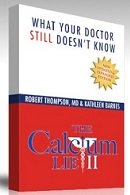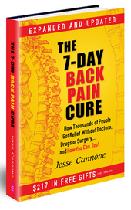|
Soy and the Thyroid
The Answer to Your Low Energy?
The consumption of soy and thyroid gland function have a significant connection because of various substances in soy that can adversely affect the production of thyroid hormone. The low production of thyroid hormone in many people, especially middle-aged women, has led to an epidemic of low energy. Here are the substances that make this connection between soy and thyroid function
Goitrogens
These are substances that suppress thyroid function by interfering with iodine uptake. The high content of goitrogens in soybeans can block production of thyroid hormone. The goitrogens in soy products may also contribute to the formation of goiters.
Phytates
Phytates can accentuate these effects because they bind zinc and copper, leaving little of these important minerals available to make thyroid hormone. Read more about phytates and their harmful effects at
Side Effects of Soy
Genistein
Genistein, an isoflavone found in soybeans, can also block thyroid production by interfering with a protein (GLUT1) that sends glucose into the cells to generate energy. This can then affect every cell in the body.
Isoflavones also inhibit tyrosine kinases, enzymes involved in cell division, memory consolidation, tissue repair, and blood vessel maintenance and regeneration. This effect of regulating cell division suggested genistein might be an agent for fighting cancer. As a result, it was urged that women use high genistein soy products to alleviate symptoms of menopause and to guard against bone loss and, especially, breast cancer.
The low rates of breast cancer and osteoporosis among Asians was presented as evidence for these benefits from soy products. However, the Asian diet typically used small amounts of mostly-fermented soybean products accounting for only about 5 mg/day of genistein. The lower rate of cancers in Asians may also be accounted for by their generally-lower rates of meat consumption.
High consumption of genistein can have other negative effects such as age-related memory loss and dramatically (60 - 80 %) slower hair growth. (An example of its slowing effect on cell energy and growth.)
Genistein slows the growth of blood vessels to tumors, thus its effect on cancer. However, it has the same effect on all blood vessels even in the absence of any cancer. This could result in a reduced supply of oxygen to cells, encouraging the initial development of cancer.
A study of 8,000 Asian men showed a negative correlation between the amount of tofu eaten and brain size. Also, there was nearly three times the rate of senile dementia among those eating the highest amounts of tofu compared to those who ate the lowest amounts. This suggests that a diet high in isoflavones such as are present in soy protein isolates may increase aging of the brain.
Synergistic Effect
So there are at least three mechanisms by which the consumption of soy and thyroid function are conected. With soy these may all be operating at once opening the way for a synergistic effect, meaning the overall effect is greater than would be the sum of the individual effects.
Low thyroid hormone production affects the function of the mitochondria (of all body cells), resulting in low energy levels and low body heat (feeling cold all the time). Low thyroid activity also reduces the activity of the heart, resulting in lack of oxygen to the cells which may be a contributor to many conditions including cancer.
Daniel Doerge and Daniel Sheehan, two scientists at the Food and Drug Administration (FDA) spoke out against claims of the supposed benefits of soy. In a February 1999 letter to the FDA they wrote:
"There is abundant evidence that the isoflavones in soy demonstrate toxicity in oestrogen sensitive tissues and in the thyroid. Eating as little as 30 grammes of soy per day can result in hypothyroidism, with symptoms of lethargy, constipation, weight gain and fatigue."
If you are experiencing low energy, evaluate your intake of all forms of soy. The thyroid is greatly affected by the harmful chemicals it contains unless you are consuming only small amounts or only fermented forms of soy. Investigate and perhaps adjust you soy consumption and you may find a solution for your low energy.
|
Keep up to date with
valuable insights into
pain management via
a healthy lifestyle.
Receive the monthly
Natural Pain Relief
Guide Newsletter.
News articles, health
tips, specials, freebies.
Enter your email and name
in the form to the right.
|
|
|








New! Comments
Have your say about what you just read! Leave me a comment in the box below.